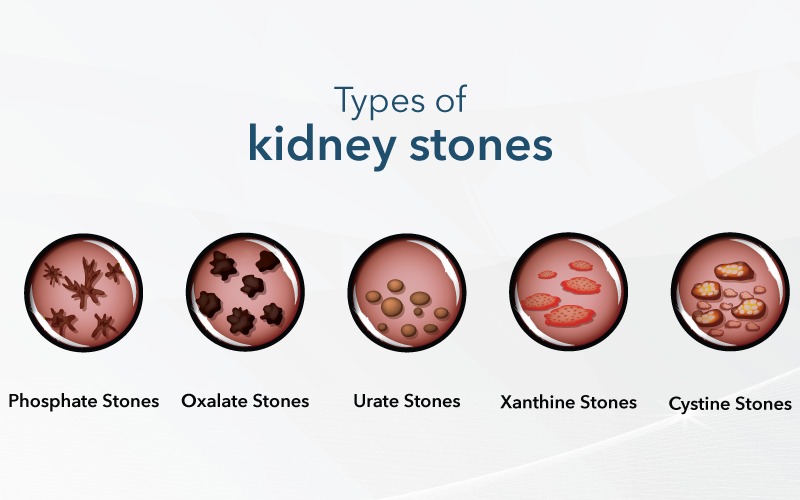Uric Acid Test Overview
Your body is constantly in motion, 24 hours a day, seven days a week. Even as you sleep, your blood circulates, your brain fires, and your gut digest that late-night snack. When you eat something, your body extracts the nutrients, such as proteins and vitamins, and discards the waste. Uric acid is commonly one of these waste products. It is produced by your body when it breaks down purines, which are found in certain foods. The majority of the uric acid in your body is excreted when you pee, and some are excreted through stool.
A uric acid test is not a common blood test. However, if you have a health concern that can cause or is caused by excessive uric acid levels, measuring it can be beneficial. Gout can be caused by high uric acid levels, which must be reduced. If you have gout symptoms, you should get a uric acid blood test to see how much uric acid is in your blood. This test is also known as a serum uric acid test, serum urate test, or UA test.
Uric Acid Test Overview
Your body is constantly in motion, 24 hours a day, seven days a week. Even as you sleep, your blood circulates, your brain fires, and your gut digest that late-night snack. When you eat something, your body extracts the nutrients, such as proteins and vitamins, and discards the waste. Uric acid is commonly one of these waste products. It is produced by your body when it breaks down purines, which are found in certain foods. The majority of the uric acid in your body is excreted when you pee, and some are excreted through stool.
A uric acid test is not a common blood test. However, if you have a health concern that can cause or is caused by excessive uric acid levels, measuring it can be beneficial. Gout can be caused by high uric acid levels, which must be reduced. If you have gout symptoms, you should get a uric acid blood test to see how much uric acid is in your blood. This test is also known as a serum uric acid test, serum urate test, or UA test.
What are Uric acid and the uric acid blood test?
A uric acid blood test, also known as a serum uric acid measurement, determines the amount of uric acid in your blood. The test can help determine how well your body creates and eliminates uric acid. Uric acid is a molecule that your body produces when it breaks down foods that contain organic components known as purines. Purine-rich foods and beverages include liver, anchovies, mackerel, dried beans, lager, and wine. Purines are also produced naturally in the body during the process of cell disintegration. The majority of uric acid is dissolved in the blood, filtered by the kidneys, and excreted in the urine. The body sometimes creates too much uric acid or does not filter out enough of it.
The majority of uric acid dissolves in your blood. Uric acid is removed from your blood by your kidneys and excreted in your urine. Uric acid can create needle-shaped crystals in and around your joints if it accumulates in your blood.
Why Would one need Uric Acid Test?
The test is most usually used to:
- Gout patients should be diagnosed and monitored.
- People who are getting chemotherapy or radiation treatment should be closely monitored.
- examine kidney function following an accident to determine the origin of kidney stones.
- Detect renal problems.
A uric acid test may be required if:
- You have gout-related joint pain or swelling.
- Already undergoing chemotherapy or about to begin chemotherapy.
- you have frequent kidney stones.
- Previously been diagnosed with gout.
- Another alternative for uric acid testing is to examine your urine for 24 hours. Your doctor may recommend both to confirm a diagnosis.
Gout symptoms
Symptoms characteristically are seen in one joint at a time. The big toe is the most usually afflicted, however, your other toes, ankle, or knee may also be impacted. Symptoms include:
- Severe agony
- Swelling
- Inflammation
- Warm feeling
- Usage of certain cancer treatments
- A uric acid urine test may also be required if you.
Have kidney stone symptoms such as:
- Sharp discomfort in your lower belly, groin, side, or back.
- Get blood in your stool & urine.
- Frequently urination.
- Being unable to urinate at all or simply urinating rarely.
- Urination discomfort.
- Cloudy urine or terrible urine smell.
- Vomiting and nausea.
- Chills and fever.
- You have gout and your doctor wants to check your risk of getting kidney stones.
How Uric acid test is done?
A uric acid test can be performed using blood or urine. Your provider will determine which tests you require:
- A blood test involves a health care provider drawing blood from a vein in your arm with a tiny needle.
- Once the needle is inserted, a little amount of blood will be collected in a test tube or container.
- When the needle is pricked in or out, you may feel a slight wound. This normally takes under five minutes. The urine should be collected over 24 hours for a uric acid urine test.
- This is mentioned as a 24-hour urine sample test. You will be given a unique urine collection container as well as instructions on how to collect and keep your samples.
Your service provider will advise you when to begin. The following steps are typically included in the test:
- To start, urinate as usual in the toilet. This pee should not be collected. Make a note of the time you urinated.
- Collect all of your urine in the container for the following 24 hours.
- During the collection time, keep the urine container in a refrigerated or ice-filled cooler.
- If you can, try to urinate 24 hours after commencing the test.
Understanding of the uric acid test results
The normal range is between 250 and 750 mg/24 hours (1.48 to 4.43 mmol/24 hours). The normal result range may differ slightly between laboratories. Some labs use several other metrics or test various specimens. Consult your doctor about the significance of your specific test results.
Urine with a high uric acid content could be caused by:
- The body's inability to process purine. It is called Lesch-Nyhan syndrome.
- Some tumours that have spread.
- A disease that causes muscle fibre degradation (rhabdomyolysis).
- Disorders affecting the bone marrow (myeloproliferative disorder).
- A renal tube disorder in which some compounds that the kidneys ordinarily take into the circulation are instead excreted in the urine (Fanconi syndrome).
- Gout High-purine diet.
Low uric acid levels in the blood are uncommon and normally do not cause health issues. Other tests are frequently used to diagnose health issues associated with low uric acid levels. Low uric acid levels in urine may be associated with kidney illness, lead poisoning, or an alcohol use disorder. A high amount of uric acid in your blood or urine does not always indicate that you have an illness that requires treatment. Many people have high uric acid levels without experiencing any health complications.
Purine reduction through dietary suggestions from your physician is also beneficial. If you frequently experience kidney stones caused by uric acid, changing your diet may also help. You might require frequent blood tests to check that your uric acid levels aren't getting too high if you're receiving various chemotherapy treatments.




 NABL approved
NABL approved  Most Trusted by
Most Trusted by  Accuracy &
Accuracy &  Widest Range
Widest Range 
















